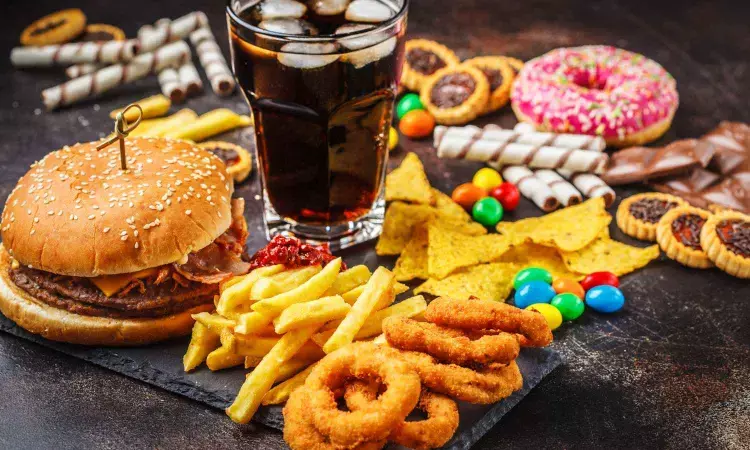- Home
- Medical news & Guidelines
- Anesthesiology
- Cardiology and CTVS
- Critical Care
- Dentistry
- Dermatology
- Diabetes and Endocrinology
- ENT
- Gastroenterology
- Medicine
- Nephrology
- Neurology
- Obstretics-Gynaecology
- Oncology
- Ophthalmology
- Orthopaedics
- Pediatrics-Neonatology
- Psychiatry
- Pulmonology
- Radiology
- Surgery
- Urology
- Laboratory Medicine
- Diet
- Nursing
- Paramedical
- Physiotherapy
- Health news
- Fact Check
- Bone Health Fact Check
- Brain Health Fact Check
- Cancer Related Fact Check
- Child Care Fact Check
- Dental and oral health fact check
- Diabetes and metabolic health fact check
- Diet and Nutrition Fact Check
- Eye and ENT Care Fact Check
- Fitness fact check
- Gut health fact check
- Heart health fact check
- Kidney health fact check
- Medical education fact check
- Men's health fact check
- Respiratory fact check
- Skin and hair care fact check
- Vaccine and Immunization fact check
- Women's health fact check
- AYUSH
- State News
- Andaman and Nicobar Islands
- Andhra Pradesh
- Arunachal Pradesh
- Assam
- Bihar
- Chandigarh
- Chattisgarh
- Dadra and Nagar Haveli
- Daman and Diu
- Delhi
- Goa
- Gujarat
- Haryana
- Himachal Pradesh
- Jammu & Kashmir
- Jharkhand
- Karnataka
- Kerala
- Ladakh
- Lakshadweep
- Madhya Pradesh
- Maharashtra
- Manipur
- Meghalaya
- Mizoram
- Nagaland
- Odisha
- Puducherry
- Punjab
- Rajasthan
- Sikkim
- Tamil Nadu
- Telangana
- Tripura
- Uttar Pradesh
- Uttrakhand
- West Bengal
- Medical Education
- Industry
Higher Ultra-Processed Food Intake Linked to Early-Onset Colorectal Adenomas: JAMA

A new study published in the Journal of the American Medical Association revealed that greater consumption of ultra-processed foods (UPFs) is associated with an increased risk of early-onset colorectal conventional adenomas (EOCRC). The findings suggest that poor dietary quality contributes to early colorectal tumor development and highlight improving diet as a key strategy to reduce the rising burden of early-onset colorectal cancer.
The research explored the connection between UPF intake and precancerous colorectal lesions diagnosed before age 50. EOCRC continues to draw concern as cases in younger adults climb globally in parallel with increased accessibility and consumption of heavily processed packaged products.
The study followed 29,105 female registered nurses from 1991 through 2015, all of who underwent at least one lower endoscopy before age 50 and had no cancer or inflammatory bowel disease at baseline. Using food-frequency questionnaires administered every 4 years, this research measured UPF intake based on servings per day using the Nova classification system.
Over 24 years of follow-up, this study documented 1,189 cases of early-onset conventional adenomas and 1,598 serrated lesions, both types of colorectal precursors. On average, UPFs comprised nearly 35% of total daily caloric intake among participants, with a median of 5.7 servings consumed daily.
The core findings highlight a significant association between high UPF consumption and increased risk of conventional adenomas which are more likely to progress into colorectal cancer. The participants in the highest consumption quintile showed a 45% higher likelihood of developing adenomas when compared to those in the lowest intake group, reflected by an adjusted odds ratio (AOR) of 1.45 with a 95% confidence interval of 1.19-1.77.
Also, no meaningful association was found between UPF intake and serrated lesions (AOR, 1.04; 95% CI, 0.89-1.22; P = .48), a different class of polyps with varied malignant potential. This study emphasized that findings remained robust even after accounting for potential confounding factors including body mass index, type 2 diabetes, fiber intake, folate, calcium, vitamin D levels, and overall dietary quality.
The participants with the lowest UPF intake served as the reference group, while higher quintiles of intake demonstrated a gradient increase in adenoma risk. Overall, this study suggests that industrial food processing may influence cancer development mechanisms and highlights dietary modification as an actionable strategy to counter the escalation of EOCRC.
Source:
Wang, C., Du, M., Kim, H., Nguyen, L. H., Wang, Q.-L., Drew, D. A., Leeming, E. R., Khandpur, N., Sun, Q., Zong, X., Gweon, T.-G., Ogino, S., Ng, K., Berry, S., Giovannucci, E. L., Song, M., Cao, Y., & Chan, A. T. (2025). Ultraprocessed food consumption and risk of early-onset colorectal cancer precursors among women. JAMA Oncology. https://doi.org/10.1001/jamaoncol.2025.4777
Neuroscience Masters graduate
Jacinthlyn Sylvia, a Neuroscience Master's graduate from Chennai has worked extensively in deciphering the neurobiology of cognition and motor control in aging. She also has spread-out exposure to Neurosurgery from her Bachelor’s. She is currently involved in active Neuro-Oncology research. She is an upcoming neuroscientist with a fiery passion for writing. Her news cover at Medical Dialogues feature recent discoveries and updates from the healthcare and biomedical research fields. She can be reached at editorial@medicaldialogues.in
Dr Kamal Kant Kohli-MBBS, DTCD- a chest specialist with more than 30 years of practice and a flair for writing clinical articles, Dr Kamal Kant Kohli joined Medical Dialogues as a Chief Editor of Medical News. Besides writing articles, as an editor, he proofreads and verifies all the medical content published on Medical Dialogues including those coming from journals, studies,medical conferences,guidelines etc. Email: drkohli@medicaldialogues.in. Contact no. 011-43720751


